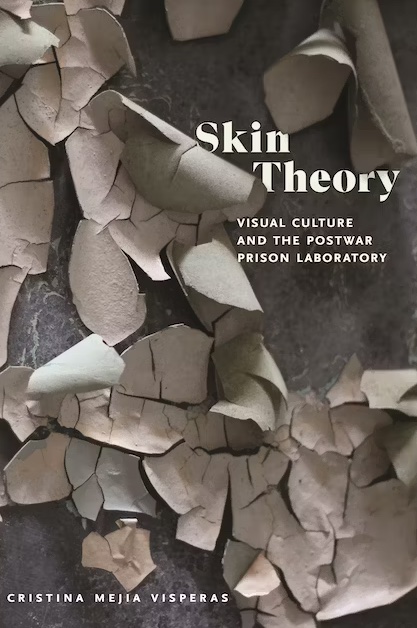In Skin Theory, Cristina Visperas identifies how the captive body in the postwar era is positioned as the ideal test subject. She does so through a thorough interrogation of Albert Kligman’s primarily dermatological human experiments at Holmesburg Prison to argue that racial capture enables the research enterprise. Suturing conversations in Black studies, science and technology studies, and carceral studies, each chapter reads objects in relation to these experiments to argue that grounding its brutal procedures was a visual culture enabled by the figurative uses of the skin.
Keyword: prison
Introduction: Theory
Lateral’s Theory Thread offers essays that critically explore the relationship of carceral and educational institutions—but not as alternatives to one another as often has been assumed in various kinds of social activism. The authors of these essays, Sora Han, David Stein, Shana Agid, Gillian Harkins and Erica R. Meiners, assume the tightly knotted interrelationship of prisons and schools and instead address the question posed by Han: is there something, being affirmed in the identity or identification as a “prison abolitionist” today?
Abolition: At Issue, In Any Case
Toward what does the “prison abolitionist” identity or identification strive? This thread is organized primarily around Fred Moten and Stefano Harney’s essay, “The University and the Undercommons: Seven Theses.” And we think there is not a better place to begin staging the relation between abolition and that to which we refer as “teaching”, with all the compromised valences such work can carry given the state of the educational system today. Indeed, as if to answer the above question about whether there is something affirmed by prison abolitionism, Moten and Harney seem to answer “yes”, there is something. In this essay, I would like to explore this “yes” as it emerges in Moten and Harney’s essay, and how it might unfold in how we imagine our engagements with law.
Making Anyway: Education, Designing, Abolition
This essay aims to raise some provocations and questions about the practice of attempting to teach abolition in universities and colleges that are embracing the notion of the duty of the university to the “community,” and pursuing the deep institutionalization of “civic engagement” curricula and programs, all while offering the promise of an opportunity to “do good” (and do well – i.e., still get a job).
Beyond Crisis: College in Prison through the Abolition Undercommons
This thread explores inter-relationships among institutions of higher education and prisons. We focus in particular on teaching and learning – the hallmarks of college in prison programs – as they relate to research and administration within and across universities/colleges and prisons. Our aim is to contribute to broader structural thinking about how we can work in college in prison programs most ethically and in ways that contribute to prison abolition within and across campus and prison settings.
PNAP Talk
This plenary talk discusses the author’s experience working with a college in prison program at Stateville Prison in Illinois.

